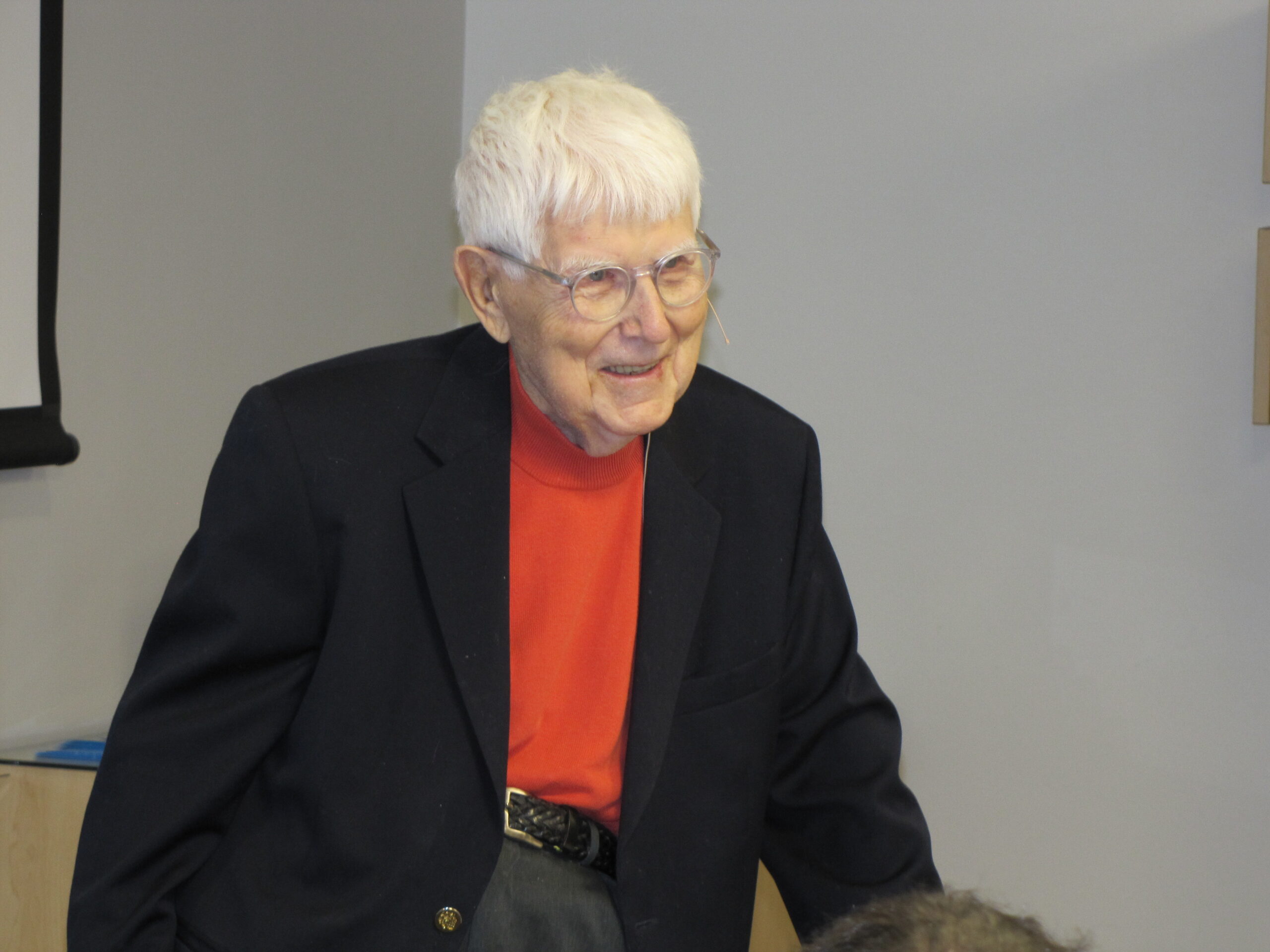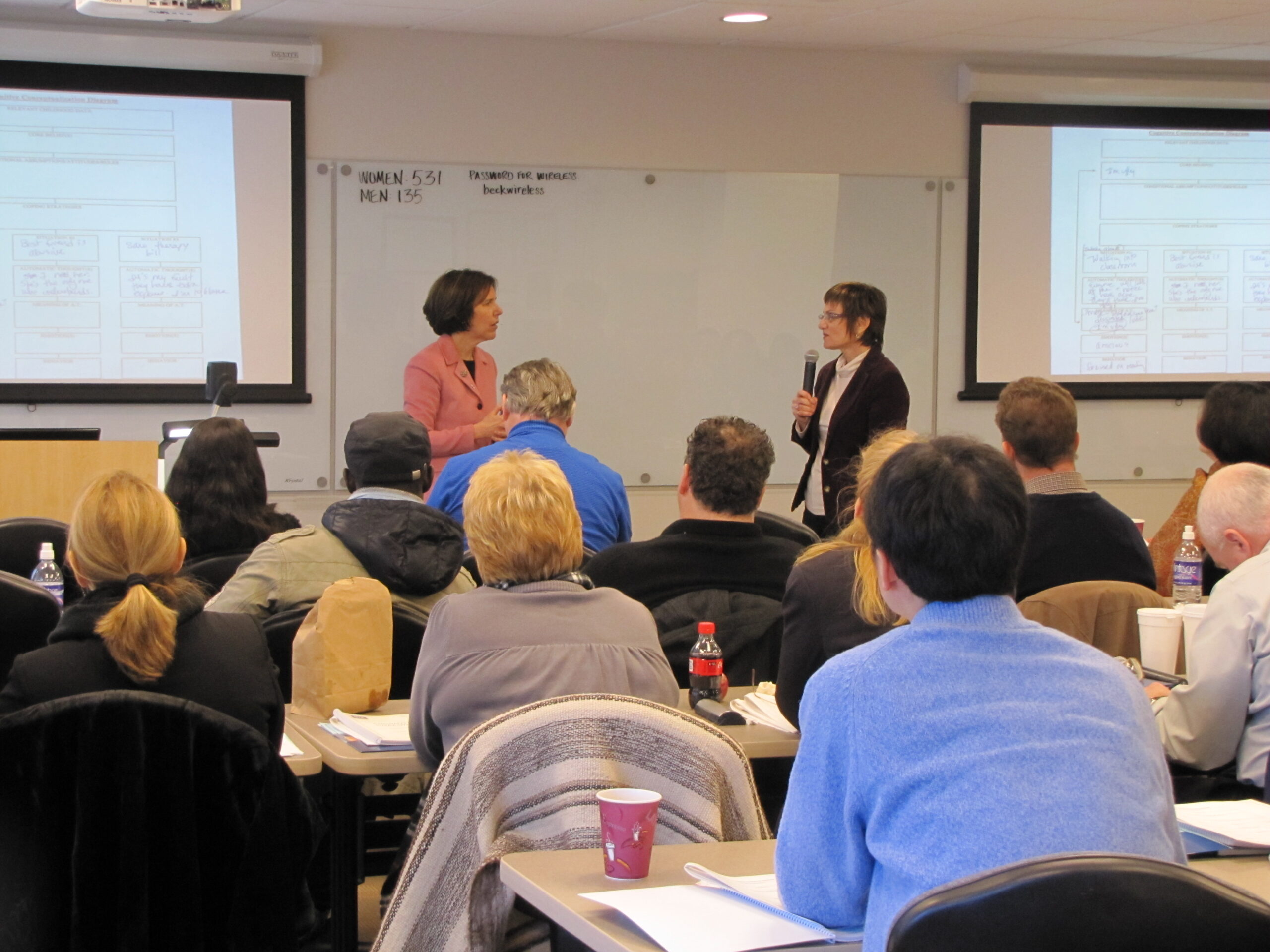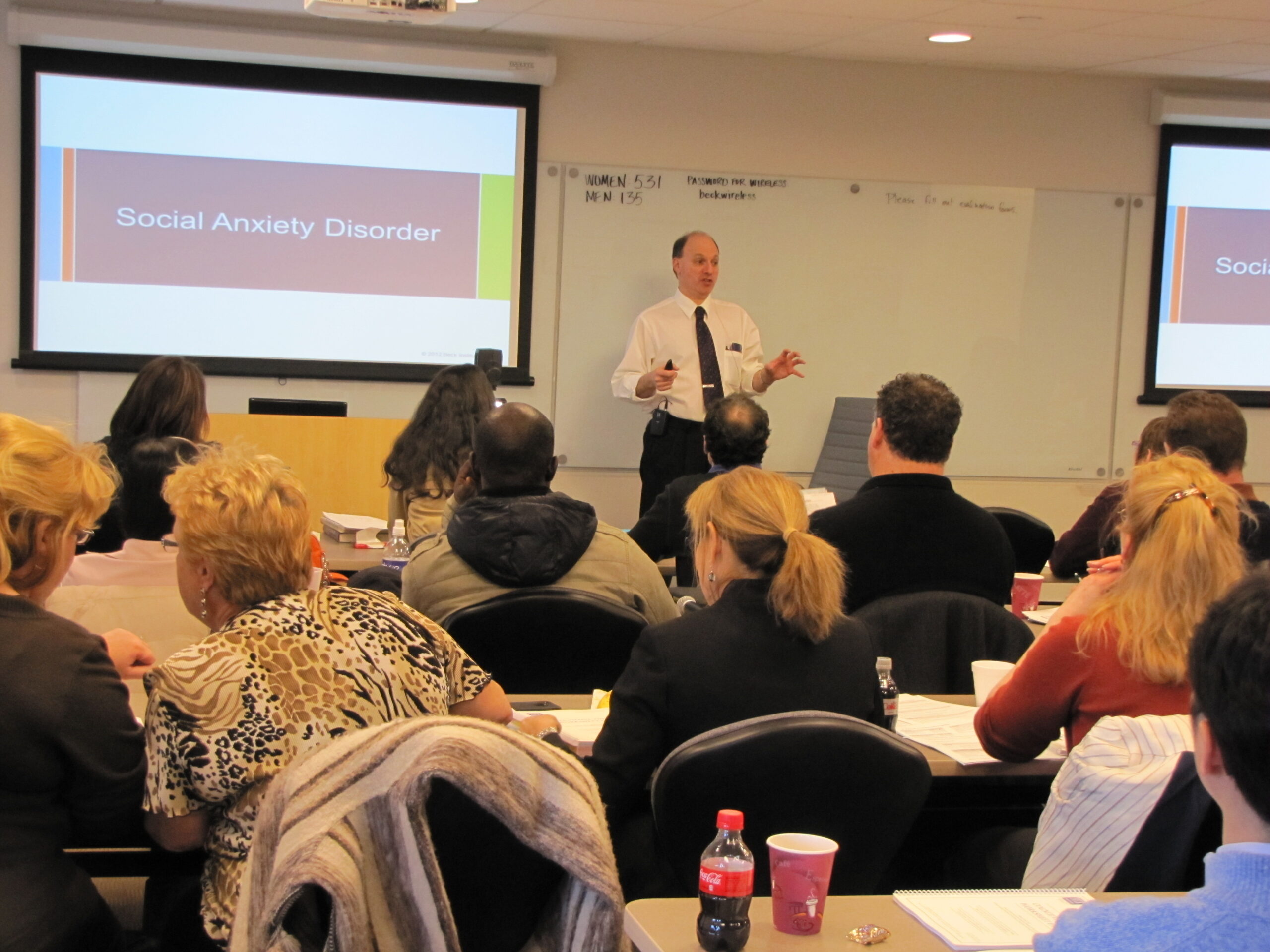 February 2012: Earlier this week psychologists, psychiatrists, physicians, social workers, professors, counselors, nurses and other professionals from mental health, medical, and related fields traveled from 15 states and 7 countries (including Australia, Brazil, Canada, Colombia, Japan, Thailand, and United Kingdom) to attend this month’s Cognitive Behavior Therapy Workshop Level I on Depression and Anxiety at Beck Institute.
February 2012: Earlier this week psychologists, psychiatrists, physicians, social workers, professors, counselors, nurses and other professionals from mental health, medical, and related fields traveled from 15 states and 7 countries (including Australia, Brazil, Canada, Colombia, Japan, Thailand, and United Kingdom) to attend this month’s Cognitive Behavior Therapy Workshop Level I on Depression and Anxiety at Beck Institute.
 Participants had the opportunity to gain professional training from Aaron T. Beck, M.D., Judith S. Beck, Ph.D., and Cory Newman, Ph.D. Trainees participated in seminars and case discussions, reviewed videos of therapy sessions, observed and engaged in demonstration role-plays among other activities.
Participants had the opportunity to gain professional training from Aaron T. Beck, M.D., Judith S. Beck, Ph.D., and Cory Newman, Ph.D. Trainees participated in seminars and case discussions, reviewed videos of therapy sessions, observed and engaged in demonstration role-plays among other activities.
Dr. Judith Beck (pictured right) spoke about cognitive behavior therapy with depressed patients and their automatic thoughts. She emphasized psychoeducation, treatment planning, goal setting, and activity scheduling with patients.

Dr. Cory Newman (pictured left) spoke about the need for anxiety and the need to learn how to control it, rather than mask it with medication.
He emphasized the use of case conceptualization and interoseptive exposure experiments in treatment.
Cognitive Therapy Demonstration
Participants had the benefit of watching Dr. Aaron Beck conduct a live patient session, which was viewed via closed-circuit television. Following the patient interview Dr. Beck answered questions from participants in a case discussion (pictured above left), during which he explained what the next session should include. Dr. Beck explained agenda setting, beginning with a review of homework and went on to explain that he asks patients, “What problems do you want my help in solving today?” to guide them into naming the problems (as opposed to giving a full description at that moment), then prioritize the problems and let him know roughly about how much of the session they’d like to devote to each one. Participants noted some key techniques that Dr. Beck used which they found to be quite useful:
- Normalizing patient’s emotions and beliefs
- Providing patient with language with which they can describe and validate their thoughts
- Instilling hope and reassuring successful treatment
- Trying a variety of methods including imagery
- Collaboration with the patient in terms of treatment model to prevent the patient from seeing the therapist as an authority figure
- Finding some light anecdotes, humor can be a nice touch in sessions
We are so pleased that so many professionals from all over the world were able to come to the Beck Institute for such an exciting workshop!
More event highlights:





